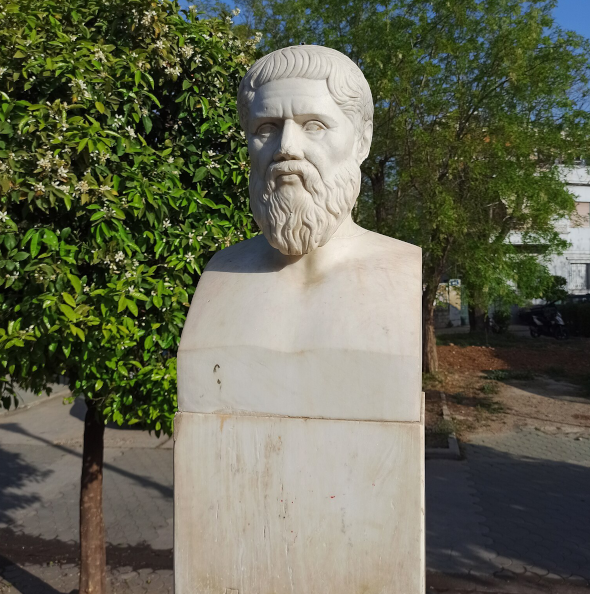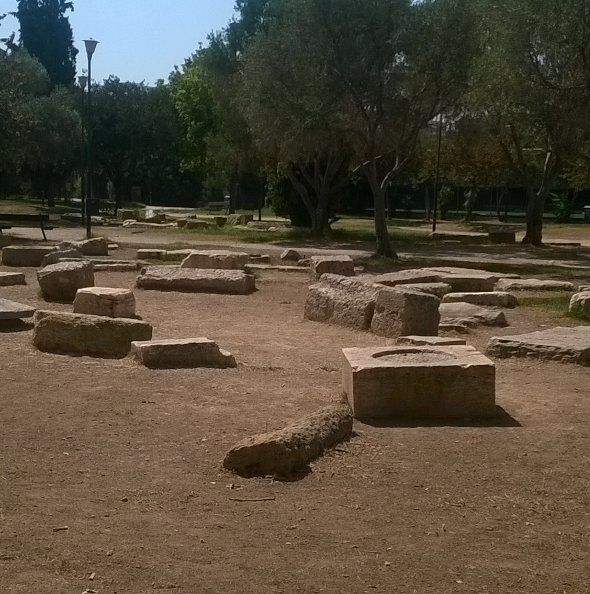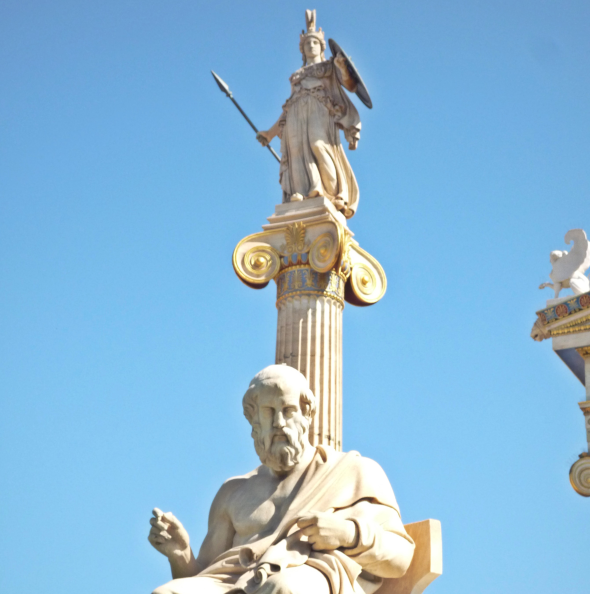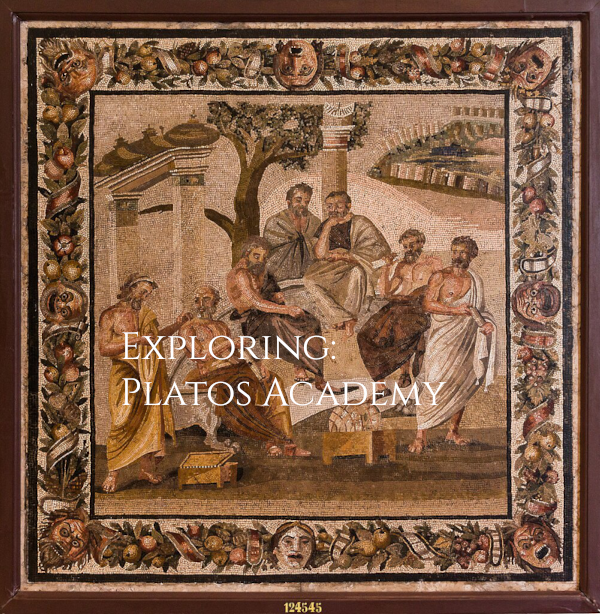In the bustling streets of ancient Athens, amid the olive groves and marble colonnades, there existed a place where intellectual inquiry soared to unprecedented heights—the illustrious Plato’s Academy. Nestled within the heart of the city, this venerable institution stood as a beacon of enlightenment, nurturing the minds of generations and shaping the course of Western philosophy.
Plato
Founded by the legendary philosopher Plato in 387 BCE, the Academy emerged as a sanctuary for the pursuit of truth, virtue, and wisdom. Its hallowed halls echoed with impassioned debates, probing inquiries, and the timeless quest for understanding the fundamental nature of existence.
At the helm of this intellectual sanctuary stood Plato himself. Plato was a towering figure whose profound insights continue to reverberate through the corridors of philosophical thought to this day. Building upon the teachings of his mentor, Socrates, Plato sought to unravel the mysteries of reality, justice, and the human soul through dialectical inquiry and rigorous contemplation.

Plato’s Academy
Central to the ethos of the Academy was the pursuit of knowledge through dialogue and critical inquiry. In Plato’s famed dialogues, such as “The Republic,” “Symposium,” and “Phaedo,” students and philosophers engaged in spirited exchanges. Constantly grappling with questions of morality, politics, metaphysics, and the nature of knowledge itself. These dialogues served not only as intellectual exercises but also as timeless reflections on the complexities of human existence and the quest for meaning.

Moreover, the Academy fostered a sense of community and camaraderie among its members. It was a fellowship united by a shared dedication to the pursuit of truth and the cultivation of moral excellence. Students from diverse backgrounds congregated under the shade of olive trees, engaging in philosophical discourse, mathematical inquiry, and scientific exploration. This, a testament to the inclusive and egalitarian spirit that permeated Plato’s vision. However, it must be noted that it was generally the aristocratic class who could afford this luxury due to the leisure time they had at their disposal.
Beyond its philosophical endeavors, Plato’s Academy played a pivotal role in the advancement of mathematics, astronomy, and natural philosophy. Scholars such as Eudoxus, Theaetetus, and Archytas graced its halls, contributing groundbreaking insights that laid the foundation for future scientific inquiry and discovery.
The Legacy of Plato’s Academy
However, the legacy of Plato’s Academy extends far beyond the confines of ancient Athens. Throughout the centuries, its influence has permeated the annals of Western thought. Therefore, inspiring generations of philosophers, scholars, and visionaries to embark on their own intellectual odysseys in search of truth and enlightenment.
In an age marked by uncertainty and upheaval, the enduring legacy of Plato’s Academy serves as a guiding light. This is a reminder of the transformative power of education, dialogue, and the pursuit of knowledge. In a world characterized by division and discord, the ideals espoused by Plato and his disciples must be revisited. For example, intellectual curiosity, moral integrity, and the pursuit of the common good remain as relevant and indispensable as ever.
As we reflect on the legacy of Plato’s Academy, let us heed its timeless lessons and embrace the spirit of inquiry, dialogue, and mutual respect that animated its storied halls. In doing so, we honour not only the legacy of ancient Athens but also the enduring quest for wisdom that unites humanity across time and space.


